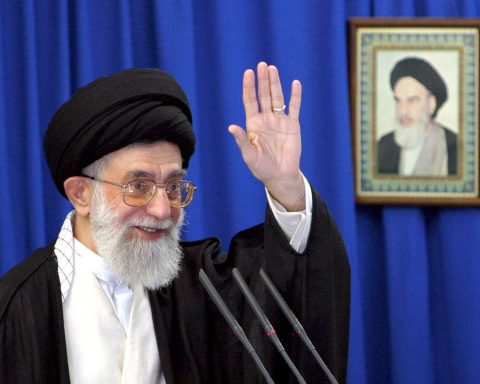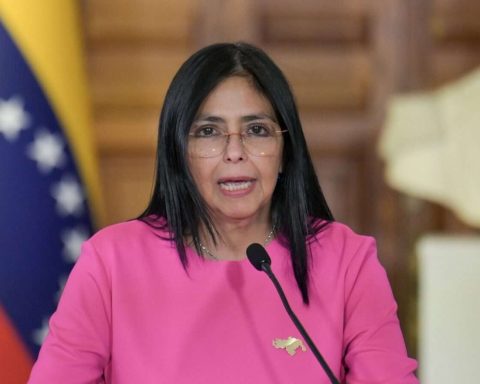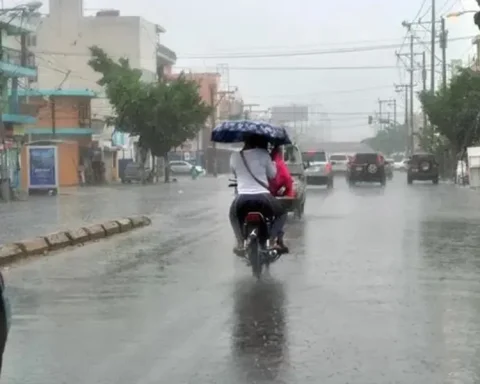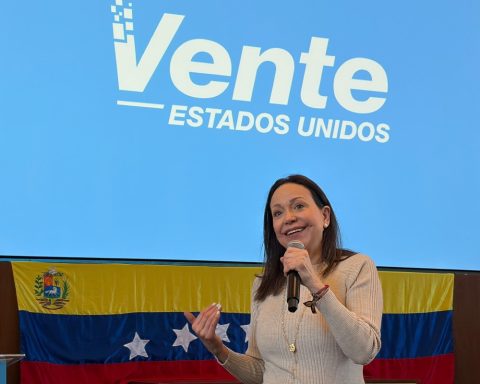A critical view of the recent visit to Chile by German Chancellor Olaf Scholz was expressed by German deputy Renate Künast and Jan Stehle – a political scientist, economist and human rights activist from the German country – in relation to the case of the former Colonia Dignidad.
“I am glad that Foreign Minister Olaf Scholz in his visit to Chile highlighted the case. Germany itself still has a lot to do in the reconstruction of that time and the treatment of the German and Chilean victims,” Künast said.
“The issue of Colonia Dignidad has been present on the bilateral agenda for decades and the scant progress on this issue has always been produced thanks to the pressure of victims, activists and journalists,” Stehle stressed.
For the expert, this illustrates the absence of a proactive human rights policy at the government and diplomacy level.
President Gabriel Boric and Foreign Minister Scholz agreed this Sunday to build a memorial site in the old Colonia Dignidad, the enclave created by Nazi non-commissioned officer Paul Schäefer that operated as a detention, torture and extermination center during the Chilean military dictatorship, and as a Christian sect, which allowed Schäefer’s systematic sexual abuse of minors.

German MP Renate Künast.
“In the (boreal) summer of 2017, we in the German Parliament unanimously decided on Germany’s participation in a site of memory and education. The fact that both heads of government have emphasized this means that now it must be done. We must not forget that financial issues must also be solved. For example, in support of the former inhabitants who live in Chile and lack resources in the midst of the needs of their age and the care required,” said the legislator.
“The creation of a memory site should not be an end point, but a starting point to reflect on the crimes of the former Colonia Dignidad and the Chilean military dictatorship. But it is about much more. The issue is why for so long time looked the other way, why was there support from the German side. The great suffering, especially caused to children, how was that not seen? Why didn’t the embassy, the Foreign Ministry, the German Ministry of Youth?” Künast added.
“The important thing about this announcement is that both heads of state make it jointly, thus showing the co-responsibility of both states in the crimes committed by Colonia Dignidad between 1961 and 2005,” Stehle stressed.

Jan Stehle is an expert on the subject of the former Colonia Dignidad.
mixed Commission
Künast is a German politician from the Greens party. Between 2001 and 2005, she was federal minister for Agriculture, Food and Consumer Protection. Between 2005 and 2013 she was spokesperson for her party’s parliamentary group in the Bundestag, of which she has been a member since 2002.
For his part, Stehle is a researcher at the Center for Research and Documentation Chile – Latin America (FDCL) in Berlin. He has been investigating the Colonia Dignidad case for years and in 2021 he published his doctoral thesis on the matter at the Free University of Berlin.
The expert affirms that the process towards this site of memory, education and documentation takes many years. The political decision dates back to 2017, when the Mixed Commission was created at the bilateral level and whose mandate included the construction of a memory site.
Both governments named four experts who submitted a proposal for this memorial site more than two years ago. These experts are Elke Gryglewski and Jens-Christian Wagner for the German side and Elizabeth Lira and Diego Matte for the Chilean side.
“Time has passed and concrete measures have not yet been announced, for example, the creation of a technical secretariat, a legal personality, a scientific council and a council of victims’ groups,” he criticized.
He added that since 2014 the German Government has financed dialogue seminars and workshops between the different groups affected by the Colonia Dignidad issue. In this participatory process, the perspectives of all the groups in relation to a memory site have been collected and dialogue between the different groups has been encouraged.
“Today there are bridges of communication between the groups and a consensus that the historical place where crimes were committed must be transformed into a place of memory. The governments are in debt,” he warned.
german stance
Künast recalled that then-Foreign Minister Frank-Walter Steinmeier opened the state secretariat’s files on the subject, although an actual decision on its review and financial support for the memorial site only dates from 2017.
“We assume the moral responsibility of the German State, we know about the defective work of the embassy in Santiago. That is why we decided on measures to elaborate the issue. There was compensation to the victims, an oral history project and interest in a memory site about the events that occurred in the Colony. That is why it is about Colonia Dignidad, but also about the Chilean military and its secret service, that is, the victims of the coup against Salvador Allende,” he said.
Stehle also expressed his vision on how the position of the Federal Republic of Germany in relation to the former Colonia Dignidad has evolved.
“Since the 1960s, the German government had had specific information about the crimes in Colonia Dignidad and did not act adequately to prevent these crimes from continuing to be committed. During the civil-military dictatorship, German diplomacy even protected Colonia Dignidad for issues ideological in the framework of the Cold War,” Stehle said.
He added that it was not until the mid-1980s that there was a change in attitude, however, this did not translate into forceful measures.
“The line was always to point to Chile as the main culprit so as not to admit its own responsibility. Only in 2016 the then Minister of Foreign Affairs -the current German president-, Frank-Walter Steinmeier, admitted errors of German diplomacy and apologized to the victims,” he recalled.
He also said that in recent years the issue of Colonia Dignidad has been more present in public opinion in Germany. The German Parliament in 2017 voted unanimously in favor of a resolution that demanded that the Government redouble its efforts to clarify the Colonia Dignidad case and implement concrete measures based on Truth, Justice, Reparation and Memory.
“The slowness, however, in the application of measures such as the installation of a memorial site in conjunction with the Chilean government, has led to misunderstanding and criticism, which I share,” he said.
judicial processes
Both also expressed their criticism of the actions of the German justice system in the Colonia Dignidad case.
“The investigations against (Hartmut) Hopp and other perpetrators who fled to Germany to escape Chilean justice were cancelled. We are currently evaluating whether new investigations can be started for some acts not prescribed. It is a shameful sign of the German justice, which has closed both eyes in this case,” Künast emphasized.
“The performance of the German justice in the Colonia Dignidad case has been disastrous. There is currently no investigation open in Germany. Since 1961 there have been criminal investigations against senior officials of Colonia Dignidad in the North Rhine-Westphalia prosecutor’s offices, almost without interruption, until 2019. All these criminal investigations were dismissed, alleging lack of founded suspicion. No member was ever charged in court,” Stehle lamented.
The specialist also recalled that, even in 2018, the Düsseldorf Court rejected the Chilean request to enforce Hartmut Hopp’s Chilean sentence of 5 years and one day in prison in a German jail.
“Germany does not extradite its citizens, however, the prosecutor’s offices, as they are German defendants and also partly German victims, have a duty to investigate, which they have not done adequately. Today all crimes, with the exception of murder in Germany, are prescribed,” he said.
He added that his country “has become a safe harbor for alleged perpetrators of Colonia Dignidad, several of whom continue to be sought by the Chilean justice system through Interpol orders. Unfortunately, the Chilean government in the proceedings against Hartmut Hopp and Reinhard Döring did not put any lawyer, as they did in many other cases other than the Colonia Dignidad issue,” he warned.
The Larrain case
Along the same lines, Stehle also expressed his criticism of the appointment of Hernán Larraín to integrate the Expert Commission of the new constituent process.
The former senator and former Minister of Justice has always publicly defended the German enclave and his recent appointment was criticized by the Association for Memory and Human Rights Colonia Dignidad, as well as by Winfried Hempel, lawyer for the victims of Paul Schäfer.
“Hernán Larraín’s role as a friend and defender of Colonia Dignidad dates back to the 1970s, when he frequented the Colonia with other right-wing representatives, such as Jaime Guzmán. As stated in the files found in Colonia Dignidad, Larraín even visited the Colonia in 1974 and 1975, when a DINA torture and extermination center operated in Colonia Dignidad,” Stehle recalled.
“His role as defender of Colonia Dignidad was especially intense in the 1990s, when the first democratic governments tried to dissolve Colonia Dignidad through administrative means – and even at the end of the 1990s, when complaints of sexual abuse of children were already known. Chileans– The fact that Larraín took over as Minister of Justice and Human Rights was a mockery for the victims and has been widely commented on in Germany as well,” he added.
That Larraín has now been named a constitutional expert, in Stehle’s opinion, “reflects a denialist attitude towards human rights from important sectors of the Chilean right.”
“It was just officials like Larraín who, through his vehement defense of the enclave, allowed Colonia Dignidad to continue committing crimes until the capture of Paul Schäfer in 2005,” he added.
For her part, Deputy Künast said that “I personally understand the concerns of the victims very well. However, the decision on the composition of the constitutional commission is a matter for Chile.”
50 years of the coup
Finally, both were consulted on what measures governments should take now, especially in the framework of the commemoration of the 50th anniversary of the overthrow of the constitutional government of the socialist Salvador Allende and the beginning of the dictatorship of General Augusto Pinochet.
“I am very happy that within the framework of the 50th anniversary of the coup in September, there are steps on the part of the Chilean government to process the issue. Learning from one’s own history also implies talking about it. What happened? And wondering how it could happen. What I remember very well, when as a young woman I was in front of the television 50 years ago and I was speechless. And full of worry,” Künast recalled.
“The fact that the complicity and omissions of both governments lasted for decades, allowed the commission of an infinity of crimes of different kinds. The vast majority of these crimes have not yet been clarified, punished, or repaired. The greatest debt is to clarify the whereabouts of the dozens of people who were made to disappear in Colonia Dignidad, there we must redouble the judicial efforts,” Stehle stressed.
Following the announcements made by Scholz and Boric in relation to the memory site, “I hope that during this year 2023, when 50 years of the civic-military coup are commemorated, we will go from words to concrete deeds, implementing this memory site, educational and documentation as a place of mourning and commemoration for the victims and also so that the new generations can learn from this history in pursuit of a Never Again”, he concluded.


















